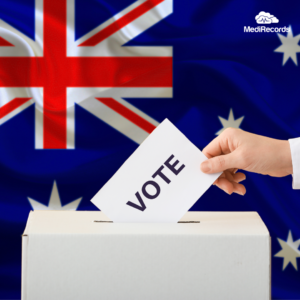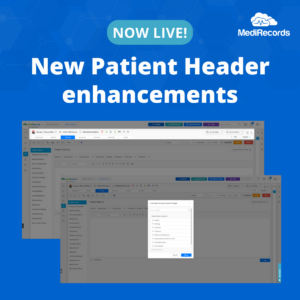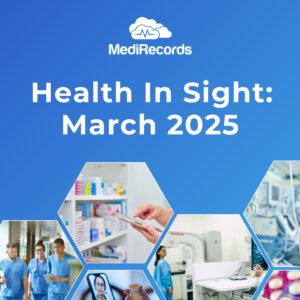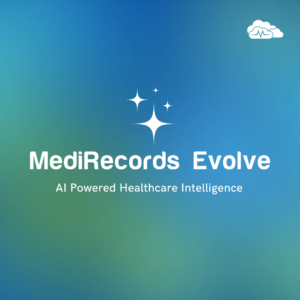May 5, 2023
A Missed Opportunity
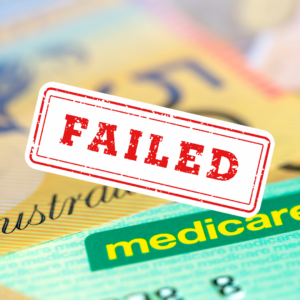

Matthew Galetto - Founder and CEO
How the Australian Government Failed to Maximise the Potential of the GP Grants Program for Digital Health Adoption
The Australian Government recently launched the Strengthening Medicare – General Practice (GP) Grants Program, allocating $220 million over two years to support general practices and eligible Aboriginal Community Controlled Health Organisations (ACCHOs). The program aims to provide funding for improvements in patient access, support safe and accessible quality primary care, and enhance digital health capabilities.
As an observer of the digital health landscape both as a consumer (patient) and participant as a software vendor, I was eagerly awaiting the unveiling of the GP Grants program. I was hopeful that the grants would finally start to address the pressing issues of our time – a need to modernise digital health infrastructure, both private and public, focusing on standards and real-time information exchange at point of care. These are not just my observations; just about everyone working in the industry understands these problems, including the government itself within health departments and at the Australian Digital Health Agency (ADHA). And, of course, patients get it too. We all experience gross inefficiencies when we visit a doctor.
Recently I learned from a colleague working at a primary health network (PHN), that no further details regarding the eligibility of the grant funding have been provided. The government has seemingly failed to establish eligibility criteria that effectively address the challenges faced by our healthcare system and specifically primary care and GP’s. I don’t even think security of patient information is a requirement!
Could have, should have – if only I had lobbied harder!
Fast-tracking the benefits of a more connected healthcare system is crucial for improving patient care, reducing medical errors, and making healthcare more efficient. The adoption of Fast Healthcare Interoperability Resources (FHIR) and other interoperability standards can enable seamless communication between different electronic health record systems, thus facilitating information exchange and collaboration among healthcare providers.
Unfortunately, the current GP Grants Program does not set specific eligibility criteria that focus on the adoption of cloud, security, FHIR or other interoperability standards – not even clinical coding standards! As a result, the program risks missing a critical opportunity to substantially enhance digital health capabilities across GP practices.
The government’s lack of focus on cloud services, security, FHIR and interoperability adoption is concerning, considering the many issues GP practices face due to siloed databases and technology platforms designed a couple of decades ago. The current state of healthcare data systems not only hinders efficient patient care but also creates additional administrative burdens on healthcare providers. By not setting clear eligibility criteria targeting these issues, the GP Grants Program will not bring about much-needed improvements in digital health and interoperability.
Unfortunately, there is a history in the Australian healthcare industry for key stakeholders and decision makers to listen to the voice of the ‘market share’, rather than the innovators, start-ups and disruptors looking to make a difference. It’s a chicken and egg scenario, no market share equals no influence, no influence equals no change. If only I had lobbied harder for change!
What could have been, should have been. Recommendations for Improvement
To maximise the potential of the GP Grants Program, the Australian Government should have considered the following recommendations:
- Set clear eligibility criteria that prioritise funding for GP practices adopting cloud, security, FHIR and other interoperability standards to ensure a more connected healthcare system.
- Encourage collaboration between GP practices and technology vendors to develop innovative solutions that address the challenges of siloed databases and improve data sharing.
- Establish clear guidelines on how the grants can be used for enhancing digital health capabilities, including specific recommendations for addressing interoperability and data sharing challenges.
- Look to other jurisdictions like the US, which have successfully modernised their digital health ecosystem. The US implemented the 21st Century Cures Act in 2016 which was well funded, mandated standards, promoted innovation, stimulated research and development and encouraged the use and uptake of web-based API’s. This had the effect of uplifting an entire ecosystem and encouraging a raft of new digital health entrants.
An Unintended Consequence: How the GP Grants Programme May Impede Digital Healthcare Reform
While the additional funding provided by the GP Grants Programme is undoubtedly beneficial for practices, there is a valid concern that it may have unintended consequences.
If practices invest grant money in outdated technologies, they essentially lock themselves into using these systems for the next 3-5 years, as assets typically depreciate over this period.
This potential outcome of the GP Grants Program could have a perverse impact on the government’s ability to implement much-needed digital healthcare reforms. By inadvertently supporting continued use of outdated technology, the Program may slow the adoption of innovative solutions such as cloud, security, API’s, FHIR and interoperability standards. In turn, this could delay the realisation of a truly connected and efficient healthcare system, which is an urgent priority.
It is disheartening to acknowledge that Australia is already lagging behind many other countries in terms of modern cloud-based digital health solutions. This funding, if not appropriately directed, will only serve to widen the gap between Australia and other nations leading the charge in healthcare innovation. The prospect of falling further behind should be a wake-up call for the government to re-evaluate the GP Grants Program and ensure it truly supports the advancement of digital health capabilities across the country.
It is never too late!!
Sign up to the newsletter
- Health In Sight: April 2025 - 01/05/2025
- Now Live: New Patient Header enhancements - 09/04/2025
- Health In Sight: March 2025 - 27/03/2025

